9 Ways Snacking Can Help You Lose Weight, Say Dietitians
You may not associate snacking with weight loss, especially when studies show that taking in more calories than needed can cause weight gain. However, while excess calories can cause weight gain, it’s the types of snacks being consumed that can be the issue—especially if they don’t actually fill you up. Snacking can help you lose weight if you are choosing snacks that will actually make you feel full and satisfied.
But how is that possible? And what kinds of foods should you be snacking on to lose weight? We asked a few registered dietitians to share with us the ways eating a snack can help you lose weight for the long term, along with their favorite snacks to eat. Here’s what they had to say, and for even more healthy eating tips, be sure to check out our list of 100 Easiest Recipes You Can Make.
- Advertisement -
Snacks prevent you from feeling overly hungry.
“If you have 5 plus hours in between lunch and dinner, having a substantial snack can absolutely be helpful,” says Rachel Paul, PhD, RD from CollegeNutritionist.com. “When we get too hungry (i.e. if you try to wait to eat from lunch to dinner with too many hours in between), we often end up feeling ravenous, and then overeating and not enjoying the next meal.”
Paul recommends eating a substantial snack to stabilize blood sugar, rather than constantly grazing throughout the day. A substantial snack should include protein and/or fat. Some of Paul’s favorites include an apple with 1 or 2 tablespoons of peanut butter, 1/4 cup of nuts, 2 string cheeses, or 2 to 4 oz. of beef or turkey jerky.
Related: The #1 Peanut Butter to Eat, According to a Dietitian
Snacks help keep your blood sugar stable.
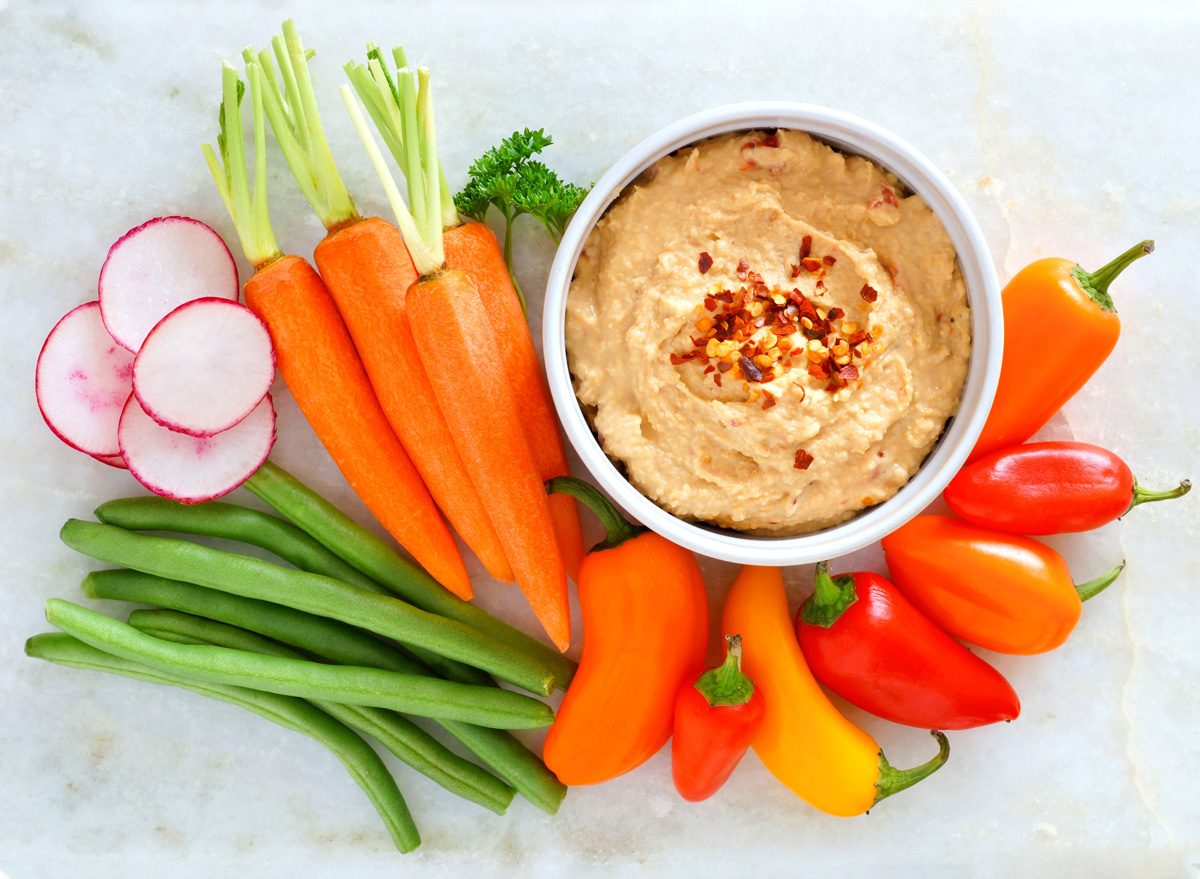
“Snacking can help you lose weight by stabilizing blood sugar,” says Theresa Gentile, MS, RDN, CDN, Owner of Full Plate Nutrition and New York City media rep, New York State Academy of Nutrition and Dietetics. “By preventing your blood sugar from dipping too low in between meals, you’ll have a more stable insulin response. When there’s a large surge of insulin released after a big meal or after a lot of carbs, it can promote more fat storage than if you eat smaller meals.”
Snacks hold you over until your next meal.
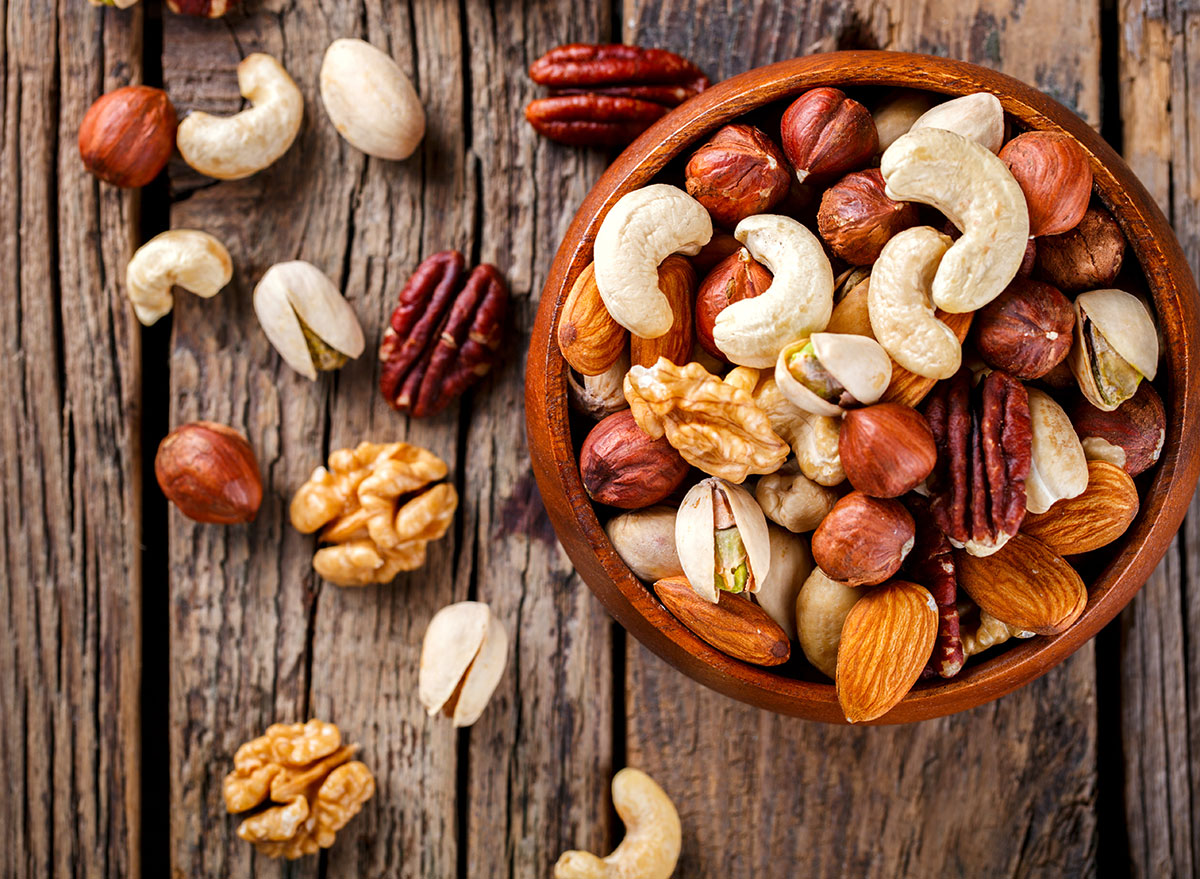
“Snacks are not necessarily designed to make you feel full, but rather to keep you from being as hungry at the next meal,” says Amy Goodson, MS, RD, CSSD, LD, author of The Sports Nutrition Playbook. “A nutrient-rich snack that contains fiber and protein will help you get full faster and stay full longer, ultimately helping you stay satiated until mealtime. If you aren’t as hungry at mealtime, it is typically easier to control portion sizes and make better choices, which also aid in weight loss.”
Goodson recommends snacking on an apple and string cheese, granola bar with nuts, Greek yogurt with berries, a slice of whole-grain bread with peanut butter, or veggies with hummus and almonds. You can even make your own hummus with our Authentic Hummus Recipe.
Snacks prevent overeating at bigger meals.
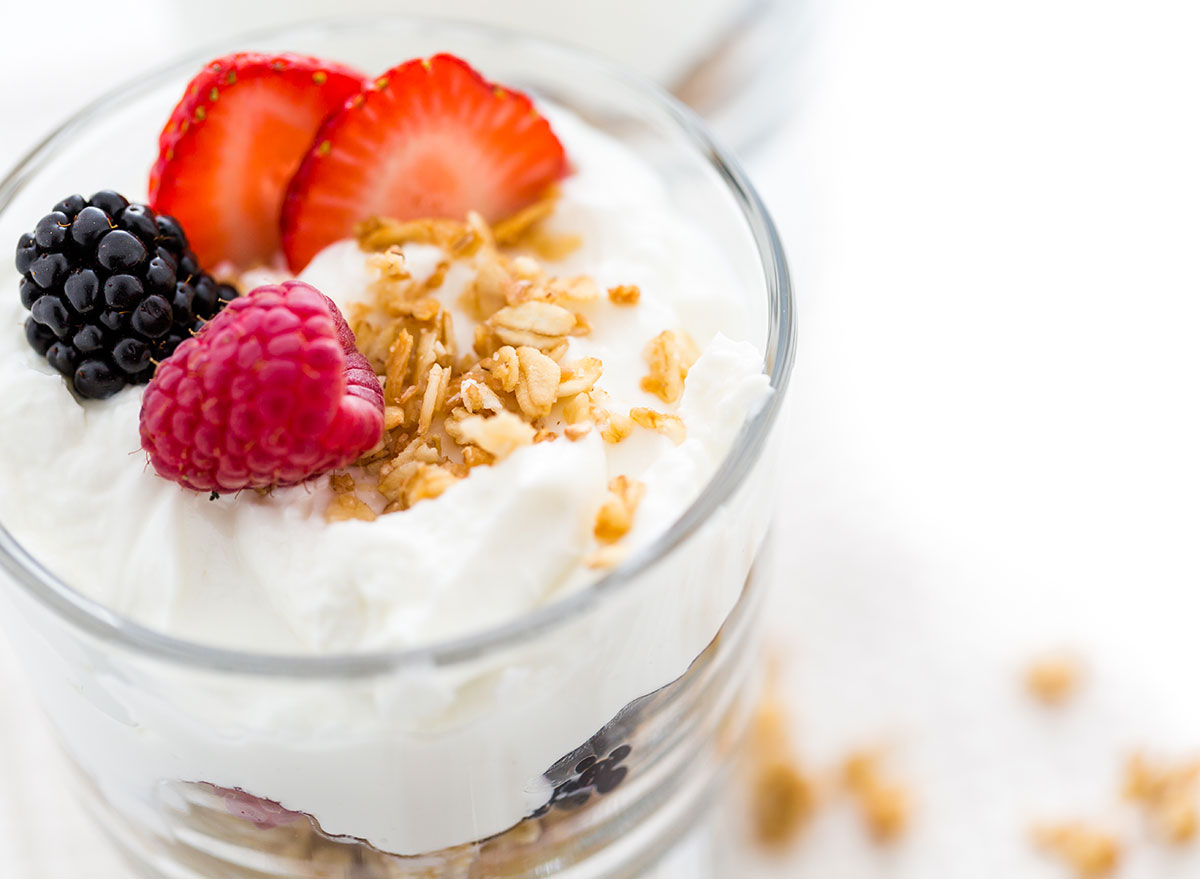
“Snacks are a great option to enjoy between meals,” says Mackenzie Burgess, RDN, registered dietitian nutritionist and recipe developer at Cheerful Choices. “I like to tell my clients to think about hunger and fullness on a scale of 1 to 10 with 1 being starving and 10 being extremely stuffed. The goal is to stay around the middle of this scale where you are just satisfied. If you find yourself noticing hunger cues throughout the day like stomach growling, headaches, or lacking energy–snacking can be the perfect way to bring yourself back to the middle of the scale. Doing so also helps honor your hunger between meals and can prevent overeating at larger meal times.”
Burgess’ favorite snacks include rice cakes with low-fat cream cheese topped with cucumber slices and Greek yogurt parfaits with honey, 2-ingredient chia seed jam, and homemade granola. She even says a small egg wrap with turkey, avocado, and lettuce in a cauliflower flatbread tortilla can work as a snack!
Snacks help you burn calories.
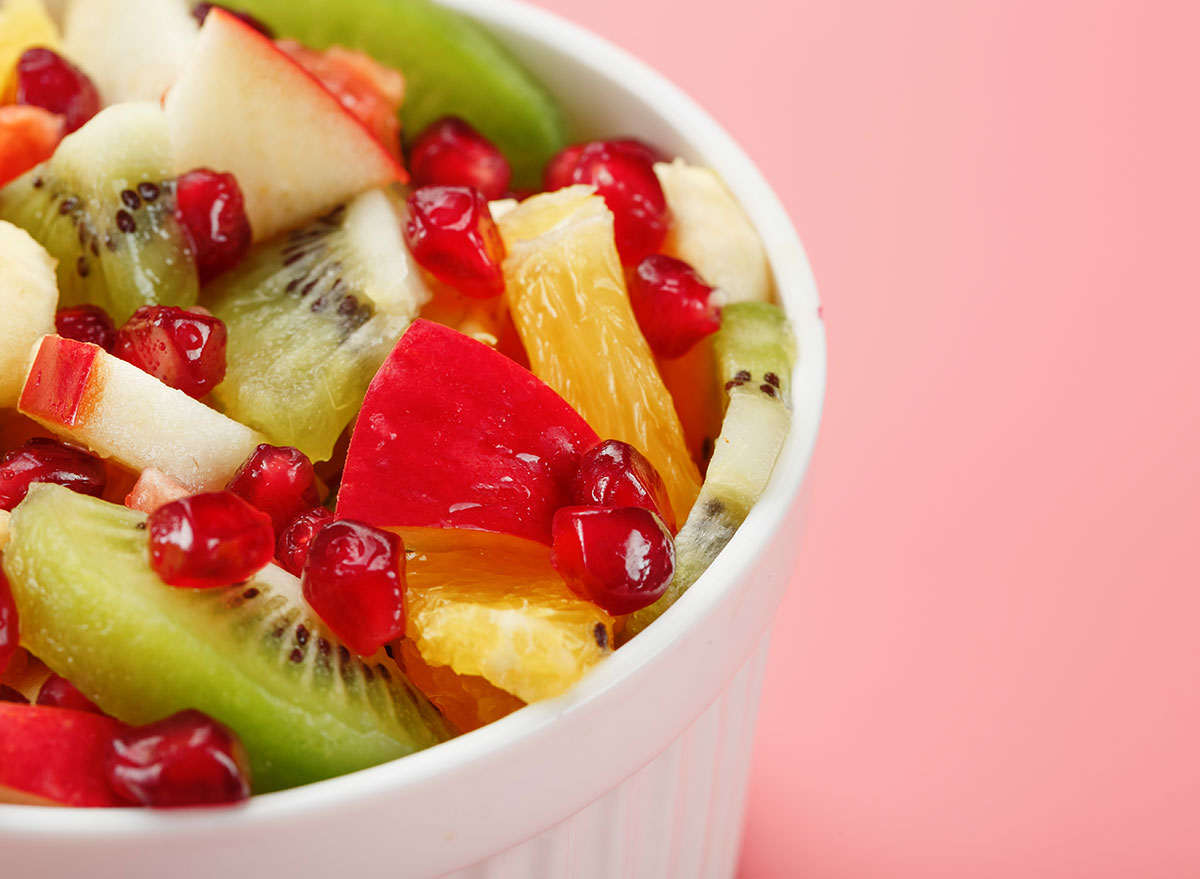
“Snacks allow your body to burn any available calories rather than store them by lowering caloric intake over time and replacing high sugar snacks with healthier options for something quick in between meals or dinner,” says Edie Reads, RD and chief editor at healthadvise.org.
Reads’ enjoys snacks including yogurt, fruit cups, oatmeal smoothies, veggies and hummus, and apples with natural peanut butter.
Snacks prevent mindless munching.
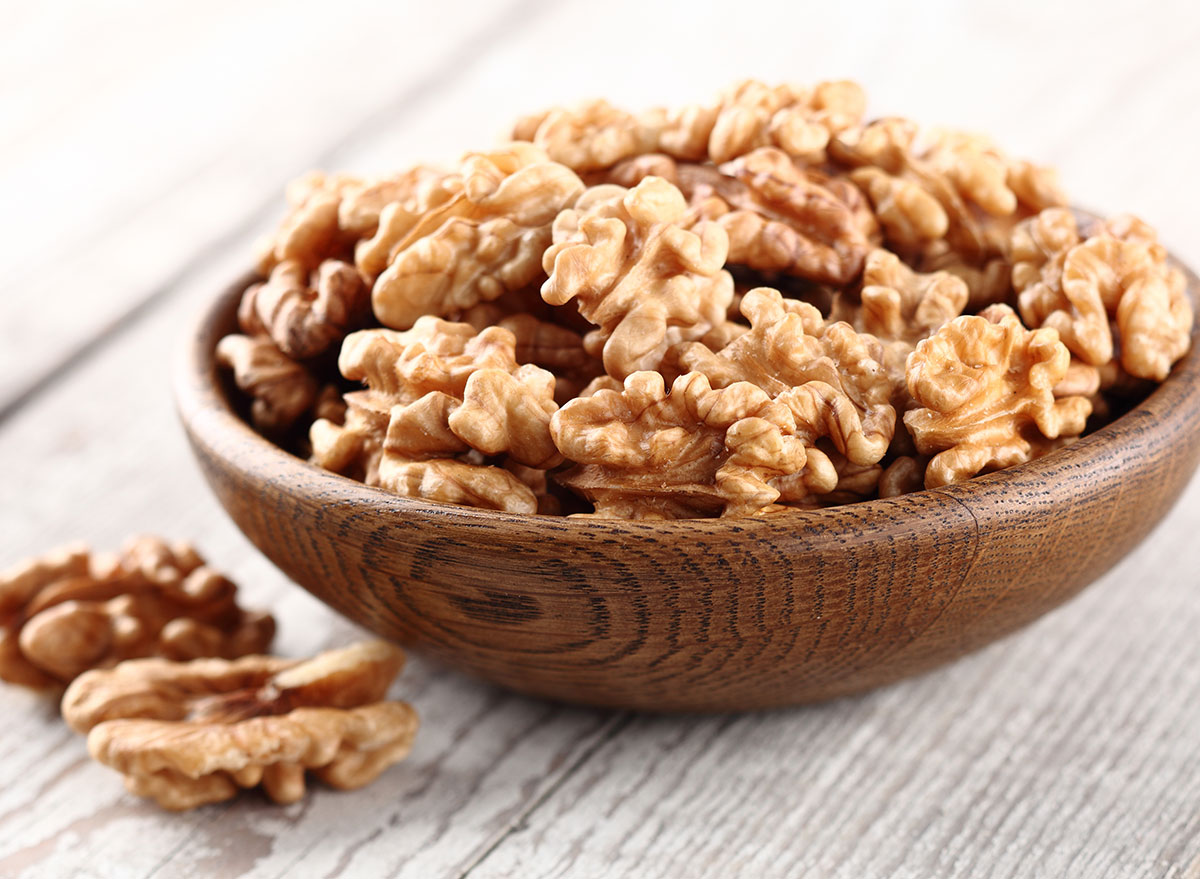
“Snacking on the right types of foods can definitely help with weight loss and those looking to lose weight definitely don’t have to banish all snacking, but rather strategically choose snacks that can help with weight loss,” says Maggie Michalczyk, RD from Once Upon a Pumpkin. “Snacks that contain protein and fiber can help with satiety, which in turn can help prevent mindless munching on things that are less nutritious and or high in calories, or sugar. Incorporating a snack with protein and fiber can help you from feeling super famished and overdoing it at your next meal because both protein and fiber work to keep your hunger in check.”
Michalczyk recommends snacking on walnuts, which are rich in polyunsaturated fats like omega-3’s, which a study in Nutrition shows can help with changing appetite hormones and keep you full and satisfied. She also recommends hard-boiled eggs because they are a good source of protein full of key vitamins and minerals from the egg yolk, and they are easy to take on the go and pair with fruit.
High-fiber snacks help you to feel full.
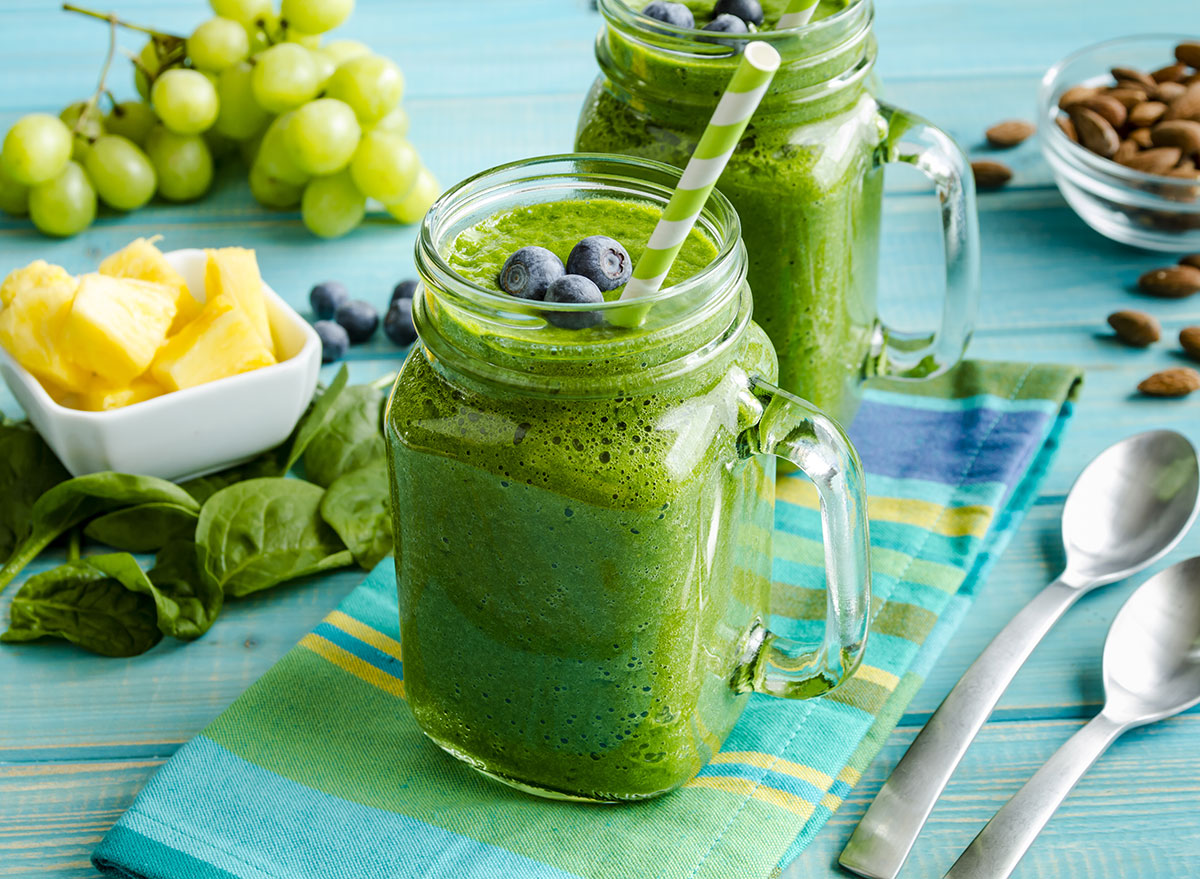
“Snacking on high fiber, gut-healthy foods can keep you fuller for longer and prevent you from becoming ravenous and overeating at your next meal,” says Kara Landau, NYC-based RD and founder at Uplift Food – Good Mood Food. “In particular selecting a snack that is rich in a gut-healthy prebiotic called ‘resistant starch’ which is labelled as dietary fiber on snack packages, has been shown to reduce your appetite at your next meal, so that you ultimately end up consuming less total calories at the end the day which can support weight management and weight loss.”
Landau recommends snacks such as cookies made with fiber and resistant-starch rich foods, high-fiber savoury puffs, mixed nuts, or a smoothie with green banana resistant starch powder.
Or you can grab one of these 25 Best High-Fiber Snacks to Buy That Keep You Full.
Snacks give you energy.
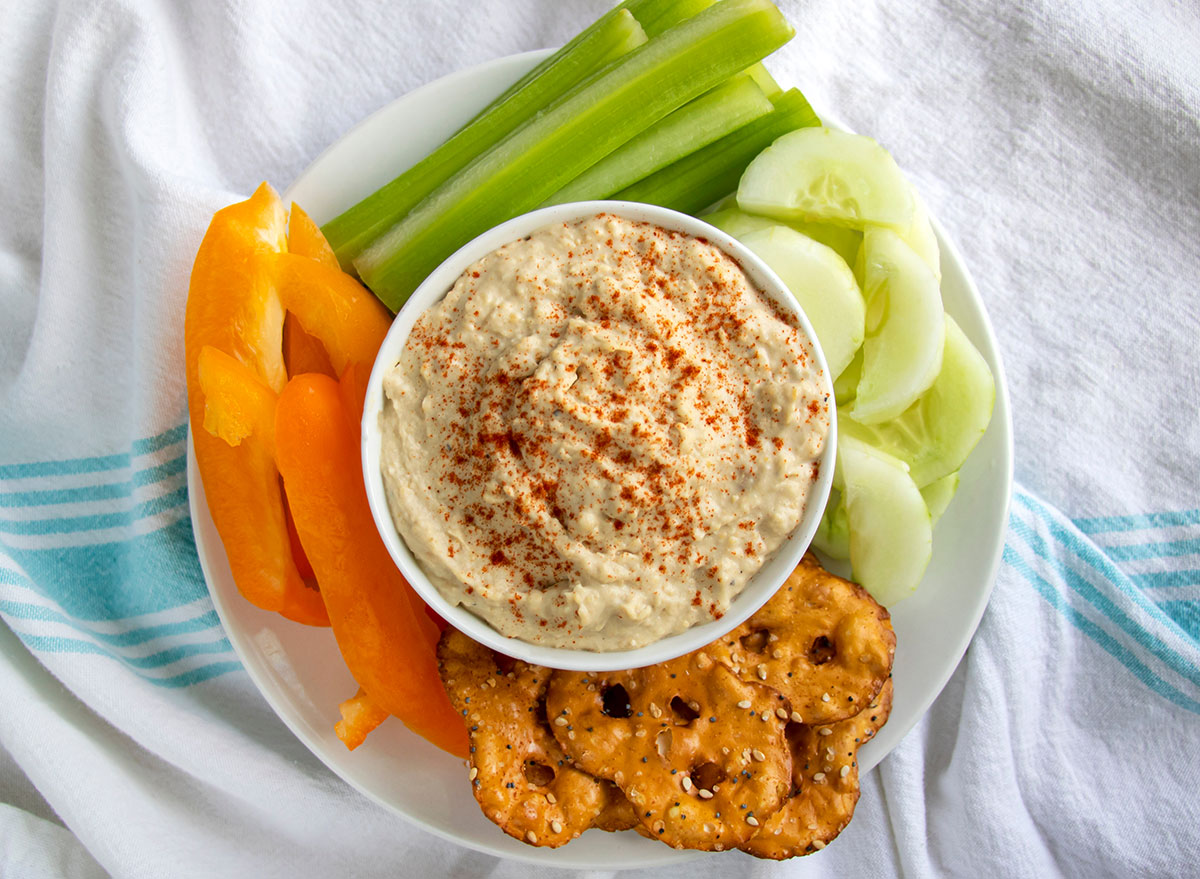
“Snacking can help you maintain your energy throughout the day and prevent binge eating at meals,” says Ricci-Lee Hotz, MS, RDN Owner at A Taste of Health, LLC and Expert at Testing.com. “Snacking should be spaced appropriately throughout the day (approximately 3-5 hours for the average person) between meals or other snacks. Snacks should have an appropriate balance of carbohydrate and protein (or fat) in order to appropriately help sustain energy and satiety.”
Hotz’s favorite snacks include an apple with peanut butter, pretzels with hummus, or Greek yogurt with blueberries.
Snacking helps boost your nutrient intake.
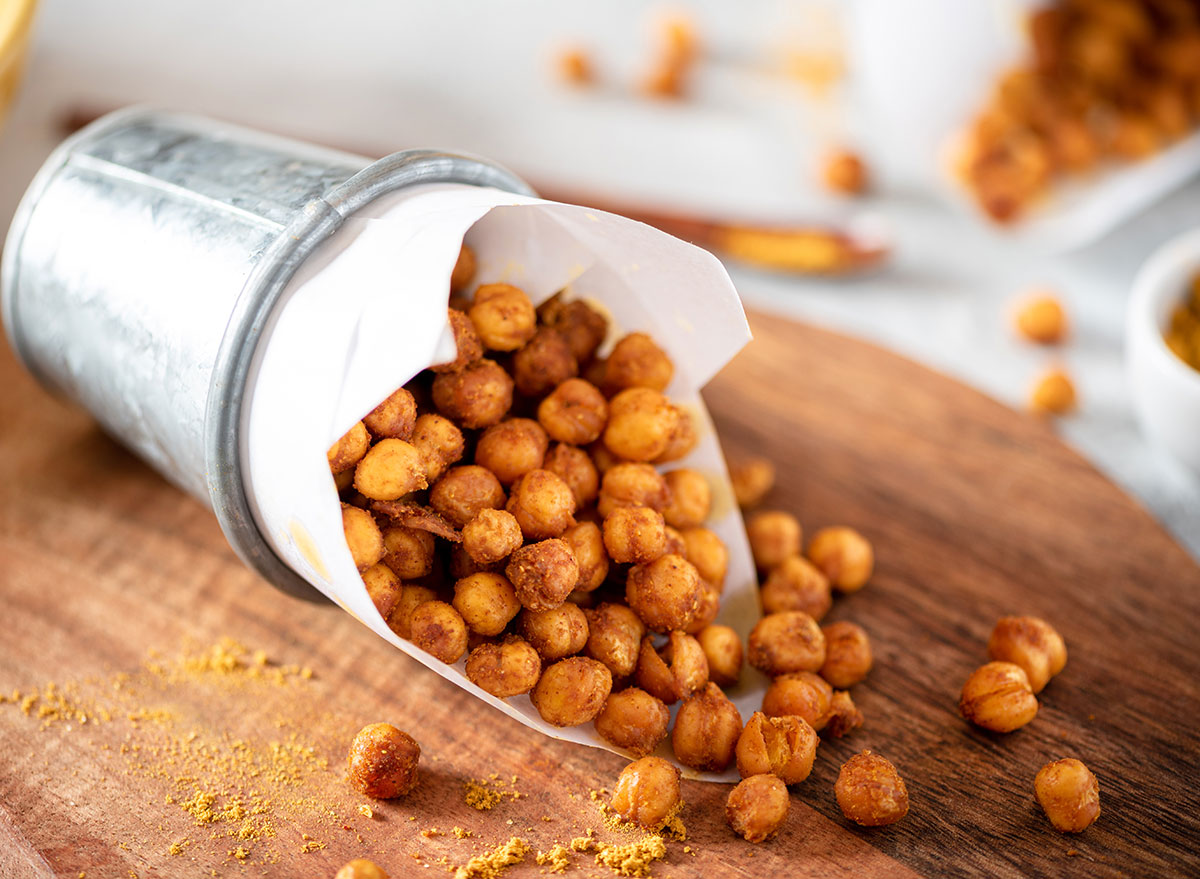
“Snacking can be a great way to boost your nutrient intake, as well as improve your health,” says Lisa R Young, PhD, RDN, author of Finally Full, Finally Slim. “And contrary to what you may have heard, snacking can even help you lose weight if planned properly. Enjoying a snack can help you lose weight as it cuts cravings later and helps keep blood sugar steady if you snack wisely. Pairing a fruit, vegetable, or whole grain—which all contain fiber—with a food that contains protein or healthy fat is a winning combination.”
Young’s favorite snacks include an apple with peanut butter, hummus with veggies, strawberries dipped in chocolate, or dry roasted chickpeas.
Look for the right kinds of snacks.
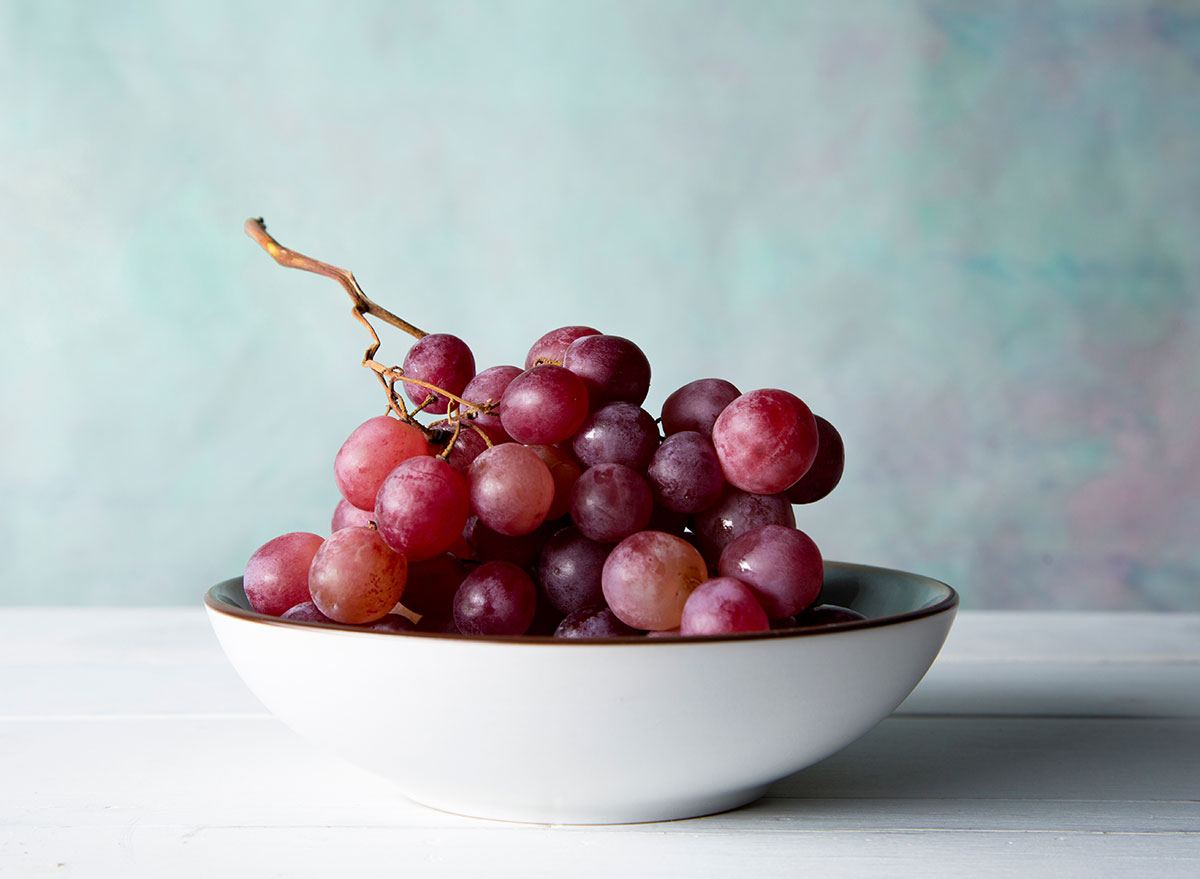
Ever wonder why some snacks leave you feeling hungry compared to others? It has to do with the quality of the snack, according to Shannon Henry, RD from EZCare Clinic. She specifically points out how 100 calories of candy won’t leave you as satisfied compared to 200 calories of nuts and dried fruit—even if the calories are slightly more compared to your candy snack.
“That doesn’t mean the calories don’t matter at all, but it’s also important to choose simple foods that provide nutrition and supplement,” says Henry. “When choosing a snack, choose one that is high in protein, fat, and/or fiber. All of these nutrients take longer to digest, so they replenish you.”
Some of Henry’s favorite snacks include nuts, grapes, and popcorn.
Get even more healthy tips straight to your inbox by signing up for our newsletter! After, read these next:
- Snacking Habits That Help You Lose Weight, Says Science
- Worst Snacking Habits for Your Waistline, Say Experts
- 10 Weight Loss Snacks That Actually Satisfy, Recommended By Dietitians
The post 9 Ways Snacking Can Help You Lose Weight, Say Dietitians appeared first on .
